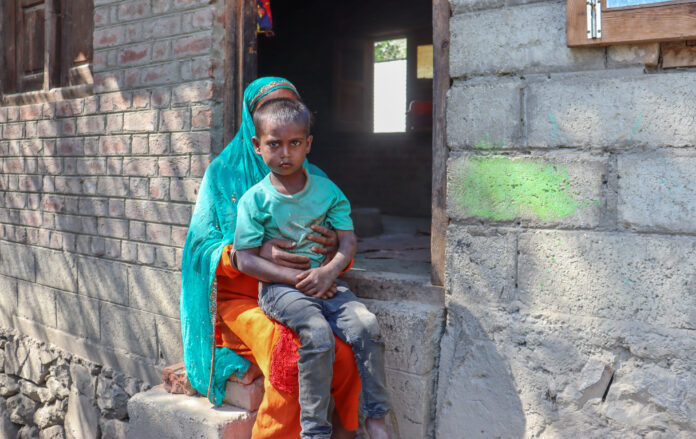
Safoora Hilal and Kounsar Bashir, TwoCircles.net
Srinagar: In the dimly lit room, barely illuminated by the single window, the space was cluttered with various items. The room was half-filled with a jumble of belongings, and in one corner, opposite to the chaos, sat a family of four, accompanied by a few neighborhood children. Nearby, a man leisurely smoked a hookah, the room’s only source of indulgence amidst the surroundings.
Among the family, a woman in her 40s sat dressed in an orange suit with a blue dupatta (scarf) adorned with a heavy border. Despite the sweltering heat, her attire spoke volumes about the family’s impoverished circumstances.
As she began to recount her story, she fumbled between Kashmiri, Urdu and Nepali, her words occasionally interrupted by her husband’s comments. The man, appearing to be in his late 50s, seemed indifferent to her narrative. She took a deep breath, her face a mask of emotionless resolve, and began her tale. Her husband’s responses, in contrast, revealed the strain and dissatisfaction within their marriage.
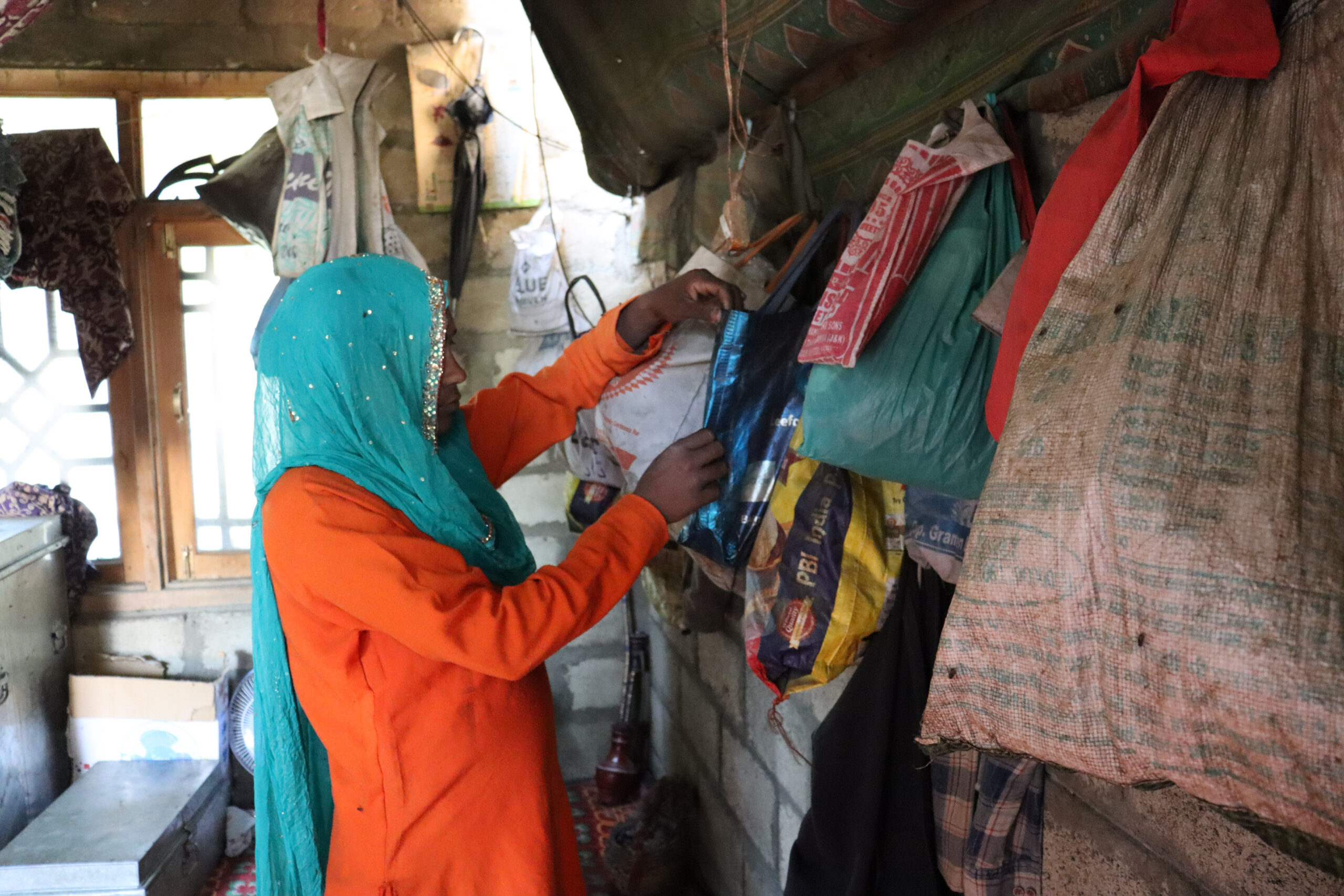
Her story unfolded with a chilling clarity: deceived and trafficked from Nepal to Kashmir by a man named Shehnaz, who had promised her work and marriage to a wealthy man. The promise had been a facade, leaving her trapped in a life far from the secure future she had envisioned.
“Shehnaz and my cousin manipulated me all through the night after my father and brother had gone to sleep. They convinced me to stay despite my husband’s abandonment of me at my paternal home during my mother’s death, promising that he would return to collect me, which he never did.”
Coming from an impoverished background, she was one of five women trafficked by Shehnaz to Kashmir. Caught in a turbulent conflict between her mind and heart, she was taken from her home — half willingly — with her toddler in tow by her first husband, from whom she had not yet received a formal divorce.
The journey from Nepal to Kashmir was fraught with difficulties, especially with a young child. Upon arriving in Kashmir, she realized that the decision to come had been a grave mistake. Despite her pleas to Shehnaz to return home, he ignored her and insisted that she could not go back. Without the means to support herself, she was sold to another man as a husband.
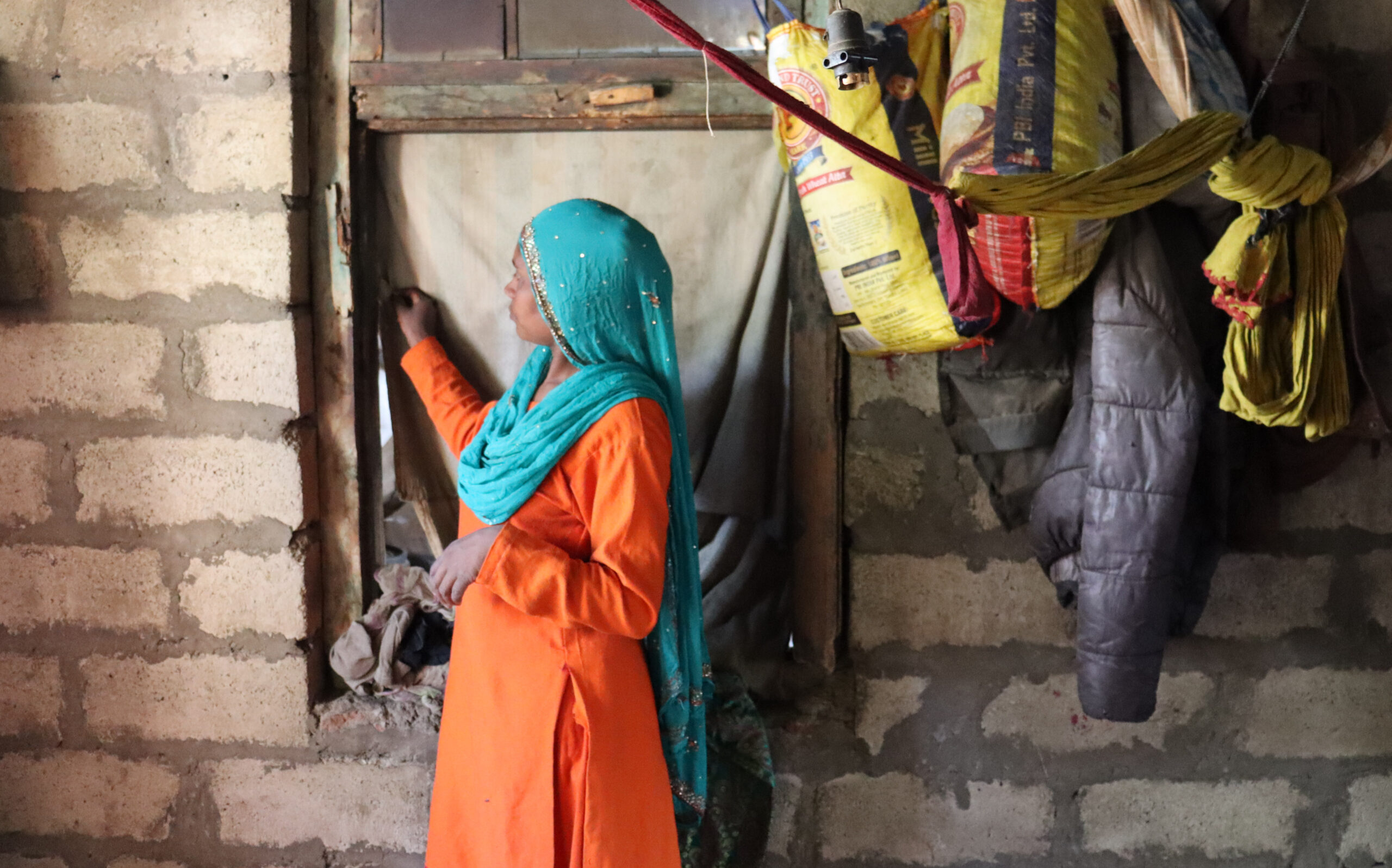
She recalled with a sigh how her name was Asghari in her native land, now changed to Rosy. Her identity had been stripped away, and she was unable to return home due to a lack of resources and the coercive marriage that Shehnaz had orchestrated for Rs 1,50,000.
Rosy, formerly Asgari, lives in a single room with a single bulb and no fan. She shares this small space with her two young sons — one a toddler and the other around five or six years old — and her husband, whom she married two years ago in a village eight kilometers from Pattan in Baramulla district of Jammu and Kashmir.
The village, known as Ghat, is accessible only by private transport or horse-drawn carriage, and returning often requires walking or hitching a ride with passing vehicles. The area suffers from poor mobile network coverage.
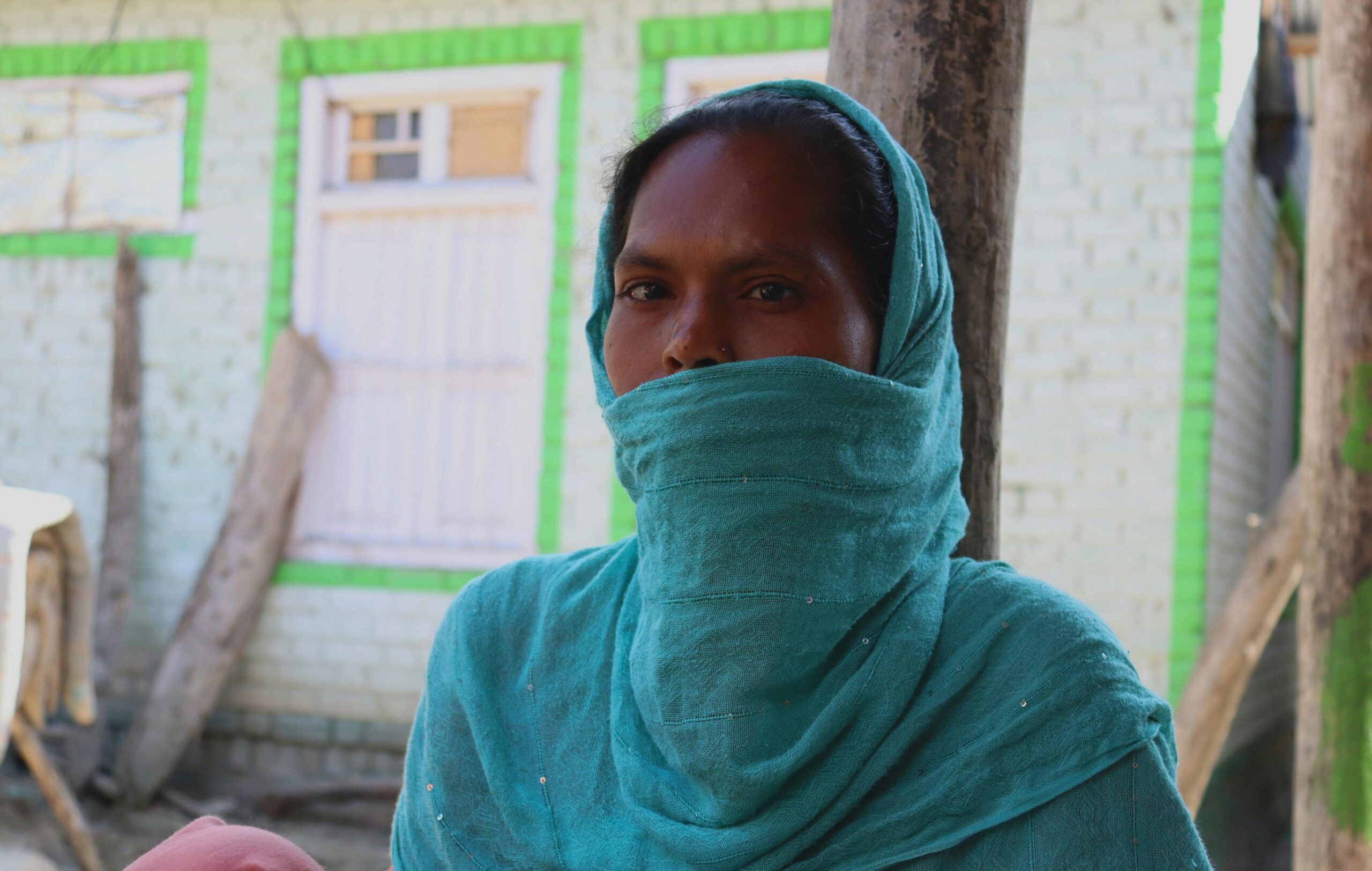
Ghat is home to about 50 households, of which 40 include women from outside Jammu and Kashmir married to local men. Some of these women were married with their family’s consent, while others were trafficked under false pretences of employment and sold for a price.
Rosy does not have a phone to contact her family, and she deeply misses them. Glancing at her husband, she mentions her first husband’s name, Ramzan. Her current husband bitterly adds that Shehnaz had promised to return Ramzan’s son after some time, but he has yet to appear.
Resigned to her fate, Rosy begins to smile as she reminisces about her father and the various foods of Nepal. “Shehnaz said he would send the money he took from my husband to my father,” she reflects.
Her husband, from behind her, adds nonchalantly that the initial demand was for Rs 2,50,000, but they settled for Rs 1,50,000.
The National Crime Records Bureau (NCRB) reported over 1,700 cases of human trafficking in 2020, encompassing adults and children trafficked into marriage, slavery and prostitution.
In another part of Kashmir, Saima from Bengal struggles with the local language while sitting on the veranda of her aunt-in-law’s house. She reflects on how her uncle lured her to Kashmir with promises of a better life and employment, only to find herself married off a few months later.
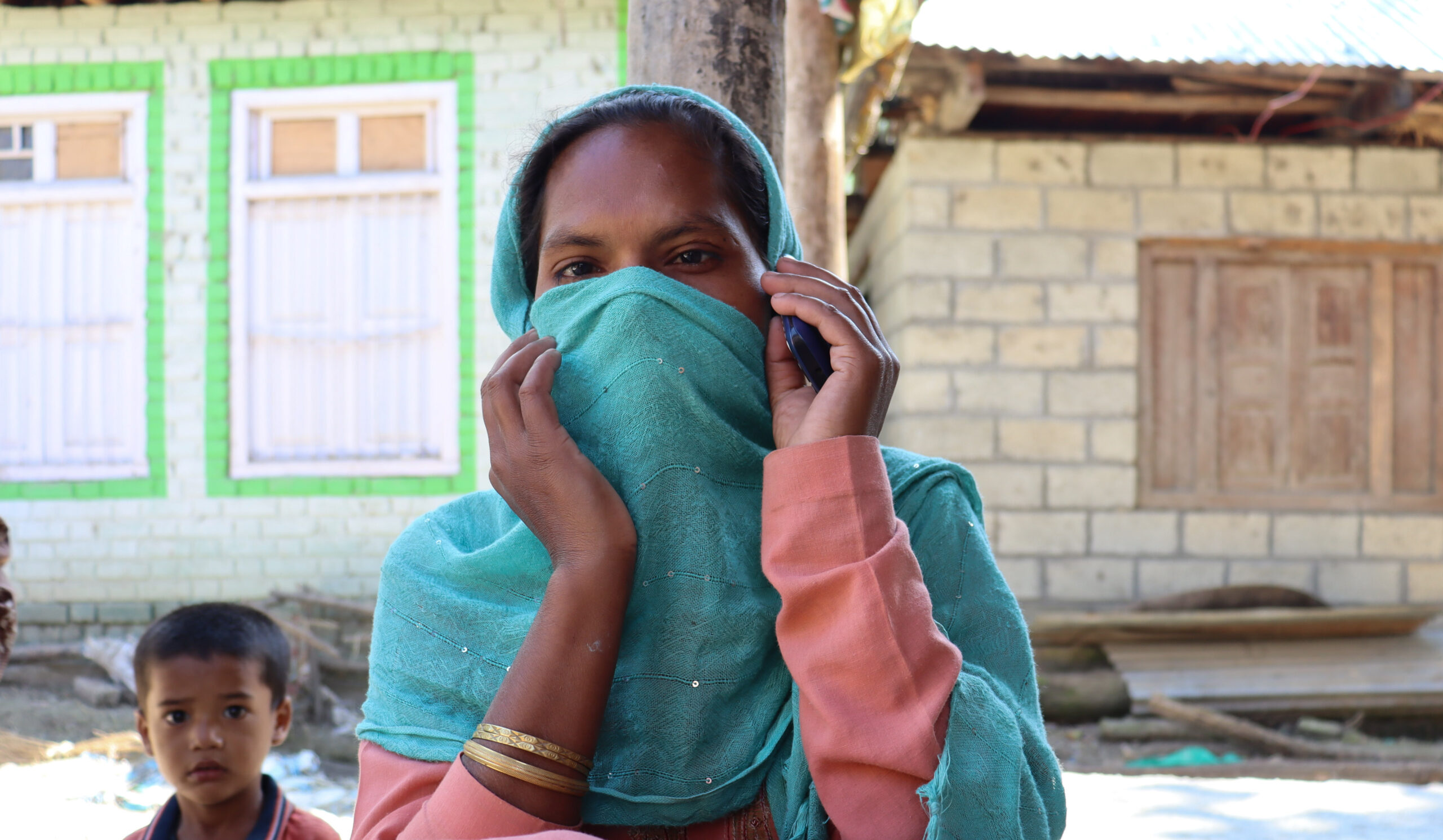
“I’ve been married for almost a year now, but I struggle because I’m unfamiliar with the language. The people here can’t fully understand me, nor can I understand them,” she says, her frustration palpable.
She tried to reach her uncle for assistance, but network issues prevented the call from connecting.
Local residents explain that many families prefer non-local brides to avoid the high amount of ‘mehr’ (financial or material gifts given by the groom to the bride) required for local brides, reflecting the economic disparities and the lengths to which people will go to minimise costs.
Safoora Hilal and Kounsar Bashir are freelance journalists based in Kashmir, India

